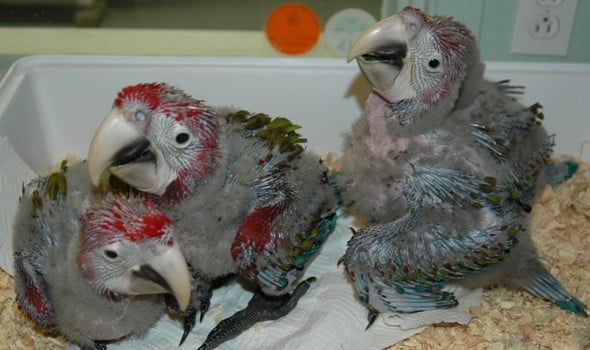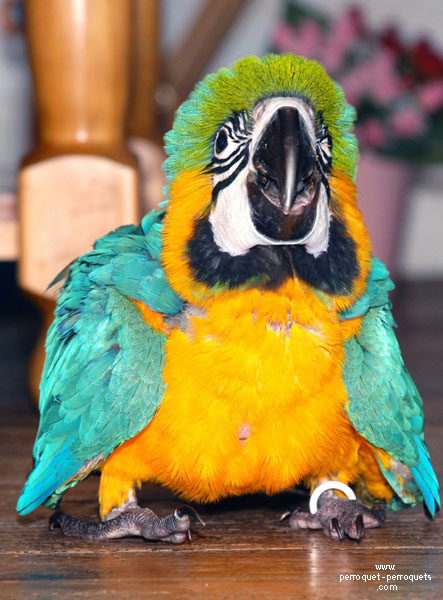I read thread about hazard of unweaned babies(after perchase), but in my case price for 1 month old eclectus was $2500 Canadians dollars, 2 month old $3000. We bought not from breeder, we bought from strange man, I don't know how to call him, he buying eggs or newborns, feed them and than sell. At 2 month old. That is also unweaned. He train me how to feed, its not hard, but after one week of feeding I am tired of feeding 4 times per day and $500 worth it.
Eclectus boy we bought from breeder for $3500 and it's lowest possible price and he is 4 month old. Breeder gave powder to feed him, but he think that syringe is king of weapon and bite syringe.
At what age I need to start giving solid food and when can start feed 3 times per day and when 2 and 1?
She now sit in plastic box with holes
Her box all the time on top of her husband cage and he sit most of time on top of cage near box with his future wife. When to transfer her to husband cage?
Boy not aggressive, even with his friend caique, who easy bite him all the time.
When I feed her sometimes she vomit. Yes, I know about food bag on her neck. Does it means I feed to much? Most of time she vomit when I take her to hands to clean after feeding and change peepad.
Eclectus boy we bought from breeder for $3500 and it's lowest possible price and he is 4 month old. Breeder gave powder to feed him, but he think that syringe is king of weapon and bite syringe.
At what age I need to start giving solid food and when can start feed 3 times per day and when 2 and 1?
She now sit in plastic box with holes
Her box all the time on top of her husband cage and he sit most of time on top of cage near box with his future wife. When to transfer her to husband cage?
Boy not aggressive, even with his friend caique, who easy bite him all the time.
When I feed her sometimes she vomit. Yes, I know about food bag on her neck. Does it means I feed to much? Most of time she vomit when I take her to hands to clean after feeding and change peepad.




